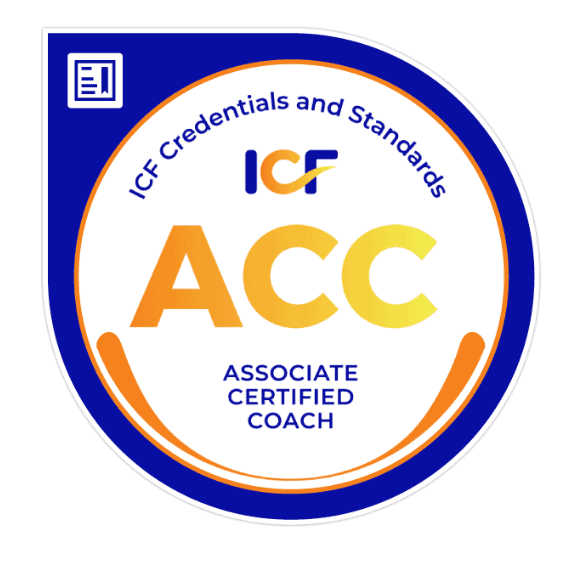A few days ago, a friend was lamenting the increasing number of people deconstructing their faith because she believed it took the focus off of Jesus. She’s not alone. Posts like hers from concerned Christians are definitely on the rise. One of the biggest misconceptions I see about deconstructing is that it is a self-centered movement that leads people away from God.
This always surprises me because most deconstructors I meet are tired of the church but actually want more of Jesus.
So which perspective is right? Could they both be right? Or could both be wrong? Let’s dive in and sort this all out!
First, there are many different definitions of deconstruction, so let’s get clear on how we will define it in this post.
According to the Merriam-Webster dictionary, “deconstruction” means “to break down (as an idea) as it is taken apart or analyzed to expose its internal contradictions, faults, and so on.” Faith deconstruction typically requires one to challenge what they were taught to believe, get as close to the source as possible, decide if it’s true, and then choose what they want to believe (if anything) from that point on.
This process requires us to examine our beliefs, feelings, attitudes, relationships, practices, and traditions. It’s not a simple process.
To be completely honest, it would be easier to walk away from one’s faith than it is to deconstruct your faith and choose to keep believing.
Those who deconstruct are typically highly motivated to maintain some level of spiritual connection and practice. The church herself has been in various stages of deconstruction that tend to alternate with seasons of heightened religiosity and legalism. This has created a broad spectrum of denominations and non-denominational organizations that hold diverse beliefs, yet we all call ourselves Christians.
A few easily identifiable examples of the church deconstructing are:
- moving from only priests having access to the Bible to widely available texts.
- using common languages more accessible to the average person rather than restricting it to Latin, which has historically only been taught to elitists and aristocrats.
- including lay people in administering the sacraments, rather than limiting access to ordained clergy.
- no longer endorsing, promoting, and even taking part in slavery and segregation while teaching it is God’s design
If the church as a system is moving away from toxic religion, we would expect to see the same movement on an individual level.
How that plays out can be complex because our experience is shaped by personal history, faith, and cultural backgrounds. Sadly, trauma, abuse, and neglect at the hands of religious people and/or institutions heavily influence our experience. Deconstructing faith requires us to wander into grey areas and sift through complex, overlapping experiences.
It requires a lot of introspective work around what we feel, believe, and choose to live out, as does all soul work. Instead of losing sight of Jesus, I see people come out of deconstruction with massive clarity around who God is and how they are connected to our Creator.
Here are a few key things to remember about spiritual deconstruction as you read this article:
| Deconstruction always… | Deconstruction is never… | Deconstruction is sometimes… |
| …boils down to choosing to take ownership over who you are and what you believe. …requires one to question, challenge, and sift through the rubble of the beliefs we are deconstructing. …involves a level of honesty and introspection that is not welcome in all circles. |
…fast. …easy. …the lazy way out. |
…overwhelming. … a way to bring healing to deep trauma. …a path to deeper faith. …a different approach to faith. … an approach to no faith. |
If you’re not familiar with deconstructing your faith, I would highly recommend checking out these articles to learn more about what deconstruction is, whether it’s biblical, and critical questions to ask yourself while deconstructing.
The first significant factor in determining if deconstructing your faith will move you closer to Jesus or away is to determine what’s driving you to deconstruct?
There’s always a catalyst to deconstruction. Something creates pressure, and that pressure drives us to look for a better option, no matter how uncomfortable it makes us. Usually, Christians get fed up, frustrated, and are tired of an ongoing issue that is harming people. What’s being preached from the pulpit isn’t aligning with what’s happening in the hallways, emails, and community.
People start longing for a faith that allows them to stay connected with God, without the legalism, abuse, and oppression they’re experiencing in toxic religion.
The second major factor determining which way deconstruction will push you is where people are facing in the first place.
Those facing God and longing for greater connection have a better chance of staying connected than those who’ve turned away from God. People who are deconstructing and still longing for God are most often hurt by fellow church-goers’ accusations of being ego-driven, not focusing on Jesus, and being a risk to other Christians. The church has a considerable responsibility here to take actions that reflect God rather than avoiding the discomfort deconstruction always brings.
Christians cannot let fear of complex, messy questions drive us to shut out those who are courageous enough to ask those questions.
The third factor we need to evaluate is what type of support system the deconstructing person has.
My deconstructing faith journey has led me toward more love, less judgment, and lots of grace for myself and others. Why? Because I was surrounded by people who modeled that type of faith to me.
Here’s what that looked like:
- I was fortunate to have a few key mentors willing to get into the trenches with me and help me figure things out.
- I had a few courageous peers who were willing to be honest when they were just as confused as I was.
- I also had a household full of people willing to let me figure things out, even if it scared them to death that I might lose my faith.
There were days when I honestly didn’t know what I believed, but I knew I didn’t have to figure it out on my own, and that mattered. Churches and individual Christians have the opportunity, and even the moral obligation, to be supportive, encouraging, and present with people who are deconstructing.
The key to holding space for people as they deconstruct is to be honestly invested in the person, not their spiritual status or belief systems.
Spiritual deconstruction is a complex issue.
We each have the ability to choose whether we move toward or away from Jesus in that process, just like every other aspect of faith.
Over the last few years, I’ve spoken to thousands of people about deconstructing from toxic religion. Most have been looking for a way to distance themselves from the church while remaining connected to God.
What’s your experience been like?
Looking for a community where you can ask hard questions and find solidarity along your faith deconstruction journey?
I’d love to invite you to the Faith Deconstruction Cafe, a safe space for exploring faith in a different way. I’ll also be hosting the Deconstructing Faith Summit in September 2021 and would love to have you join me and 19 other speakers as we discuss ALL the things related to deconstruction!

Angela is a Faith Deconstruction Coach and host of The Deconstructing Faith Summit who helps people break free from toxic religious culture & empowers them to recover from #churchhurt. She has led online ministries for a decade, enjoys working with clients 1:1, in groups, and is a dynamic conference speaker. She’s a Lark’s Song Certified Life Coach who reaches thousands of people in 40+ countries each month on Facebook, IG, Twitter, Pinterest, and her blog.
She’s a firstborn, Enneagram 8, Gen Xer who loves to question everything. She holds a BA from Indiana Wesleyan and a Masters in Leadership from Wesley Seminary. Her graduate research project focused on leadership development and opportunities for Gen X women in the US church.
Angela and her unique online ministry are featured in Lyz Lenz’s 2019 book God Land: Story of Faith, Loss, and Renewal in Middle America. She has published articles in Hope for Women and HOPE is Now magazines. She has been featured in The New Republic, Publisher’s Today, and Religion News Service.
Her first book, Deconstructing Your Faith Without Losing Yourself, Will be published by Eerdmans in February 2023.
Angela is also a wife, mom to 5, and a proud resident of Marion, Indiana with her family when they’re not traveling the US in their RV.








